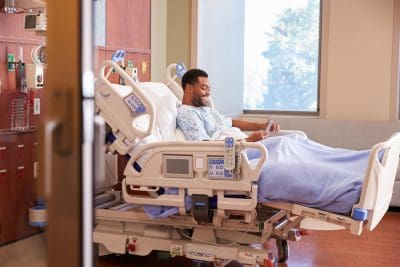
Gastroesophageal reflux disease (GERD) affects approximately 65 million adults in the United States, yet many sufferers normalize their symptoms without seeking proper medical attention. Dr. Kavita R. Kongara, a distinguished gastroenterologist with over 25 years of experience, shared her expertise on this common condition. As Clinical Chair of Motility at United Digestive and a Georgia Physician Executive Board Member of Atlanta Gastroenterology Associates, Dr. Kongara specializes in complex upper and lower GI motility disorders. Her impressive credentials include a BA/MD from the University of Missouri, residency at the University of Rochester’s Strong Memorial Hospital, and a GI fellowship at the Cleveland Clinic. Recognized as a Top Doctor by Atlanta Magazine in 2024 and 2025, Dr. Kongara offers invaluable insights into understanding, identifying, and treating GERD.
What do we need to understand about GERD?
Gastroesophageal reflux disease can affect up to 65 million adults in this country. So it’s about 20% of the population, and it’s fairly common. It is a condition that can cause many symptoms and cause lots of suffering, but it can also cause damage to your organ because of the inflammation that can occur. So it’s a common condition, but there are great options for treatment.
Can you explain the difference between erosive and non-erosive GERD?
GERD itself is gastroesophageal reflux disease, and that is a diagnosis that, if you seek and see your healthcare provider, they hear your symptoms. That is the condition itself. But where it’s differentiated is, if your symptomatology and treatment plan includes a procedure called an upper endoscopy that I do as a gastroenterologist. When we look at that esophagus, we can then tell you if there are erosions or inflammation with our eyes; that is erosive GERD, which accounts for about 30%. The remainder, the more common type of GERD, is non-erosive reflux disease, and so we don’t see visible damage, but yet patients still have GERD, and the treatments can be very similar, as are the presenting symptoms. This is a tissue differentiation.
How can individuals distinguish when they need professional help for GERD?
Every patient is different. Their treatment plans may be different. Some include dietary, some include medications. Most people these days treat themselves. They think this is heartburn, this is reflux. Let me take over-the-counters, and if they are responding, that’s something we want to hear, and we may continue with that medication. Often they use things called histamine blockers or PPIs—proton pump inhibitors, but if they’re not responding to dietary interventions and the typical treatments, we may up the dose and give them a prescription. There may be other medications, such as Vonoprazan, which is a PCAB inhibitor that works when over-the-counters don’t work sometimes, or the typical medications and lifestyle modifications don’t work. So it is very important to know there are options out there but to discuss your symptoms with your provider.
What are the top signs that a person really needs to seek professional help?
If we have a late night out, which we all do, and you have a great meal, glass of wine, and you overate, you have heartburn, but it’s just rare, and you know why, that’s fine. But if you have heartburn or regurgitation, which is liquid coming upwards in your chest, chest pain that’s not your heart, coughing, these are some typical and atypical symptoms more than 2 or 3 times a week, then those are signs you should really talk to a provider. This may not be simple heartburn, and this may be associated with gastroesophageal reflux disease, and you may need an evaluation.
Can you share one treatment option that is now available and how it works?
Typically patients will try lifestyle modifications, already try over-the-counter medications, and if H2 blockers and PPIs, which have been out for a long time, do not work, then Vonoprazan, which is a PCAB inhibitor, may be an option because it works a little differently. It prevents, on a pump in our stomach called the potassium-hydrogen pump, potassium from coming in. What does that do? Why do we care? Because then acid can’t be secreted into the stomach, and that is how it works. It works rapidly, and it has durability, so it can help with both healing and then also give you heartburn relief. So this is a bit different in the way that it may provide relief, whereas other things have not. So patients should absolutely talk to their provider. No one patient responds to the same treatment, and it may or may not help you, but because it’s out there as one of the options, this should be discussed with your provider.
Why did you decide to specialize in this area of medicine?
When I started in the field 25 years ago, there weren’t a lot of people that looked like me, and there weren’t a lot of women in medicine. Frankly, I felt that I wanted someone out there to feel comfortable to talk to somebody. And it’s a common condition. And so I saw that it can, in fact, impact quality of life. And that is important. At the end of the day, you can have tissue damage, and rarely this can cause narrowing of your esophagus and even precancerous conditions. So, quantity of life, but mostly I wanted to help with quality of life, and that’s why I went into this.
What advice would you give about maintaining good gut health?
I would definitely say, if it makes sense to you, the word moderation. So diet, you can have your treats, but mainly put things in your body that you put in the bodies of your kids. So eat healthy, exercise, get out there and move it. Try to manage your weight. Be at a healthy weight for yourself. Try not to eat so late at night. We’re all busy, but small, frequent meals, eating healthy, managing your diet, lifestyle exercise plan is generally what I would recommend, and if you do suffer from symptoms you think are related to GERD, there’s definitely a list of foods that might make that worse. So things in moderation are fine, but you may want to cut down those cups of coffee, alcohol, citrus, foods like that, that may worsen GERD in particular.
How can family members help someone who might be normalizing GERD symptoms?
I think you start by saying to them that every now and again, if you have a symptom, that’s okay if you know what brought it on. But when you have symptoms that are almost on cue 2 to 3 times a week and affect your sleep or your eating or your quality of life, boy, when you don’t sleep and when you’re uncomfortable, what can you do good in the rest of your life? That’s your day-to-day. So there are very great options, and it doesn’t always mean that every patient needs medication. It does not always mean that every patient’s medications work alone without diet, but to talk to a provider and not be scared to know that the right option for you, in particular, with hearing your needs, will be heard, and you can have improved quality of life, hopefully that’ll convince them that this is something that they should do for themselves.














